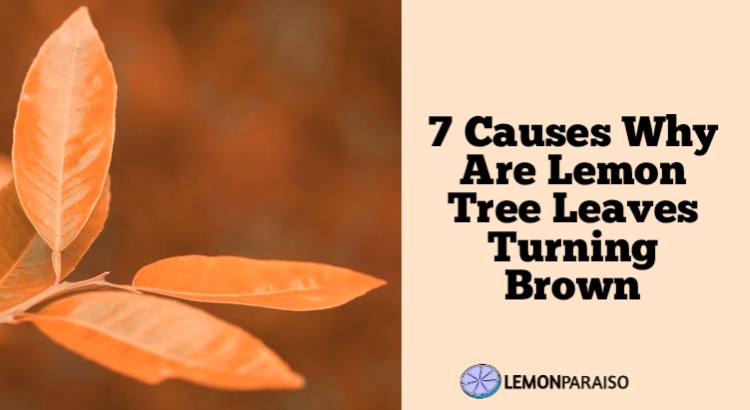Do Lemon Trees Grow In Arkansas?
Lemon trees are known for their fragrant flowers, juicy fruits, and Mediterranean origins. However, if you live in Arkansas, you might be wondering whether lemon trees can grow in your state.
Can Lemon Trees Survive In Arkansas?
Lemon trees, which are native to subtropical regions, can face challenges when grown in Arkansas due to the state’s fluctuating temperatures and winter frost. Although it is possible for lemon trees to survive in Arkansas, they may require extra care and attention in order to thrive.
Gardeners should consider planting their lemon trees in the warmest and most sheltered areas of their property to minimize exposure to cold temperatures. Implementing protective measures, such as using frost blankets or even growing trees in containers, can also help increase the likelihood of survival.
Selecting cold-hardy varieties, such as the Improved Meyer lemon or Ponderosa lemon, can further increase the chances of success. Overall, while it may be more challenging to grow lemon trees in Arkansas, it is not impossible with the proper care and precautions.
What Is The Best Time To Plant Lemon Trees In Arkansas?
The best time to plant lemon trees in Arkansas is typically in the early spring, after the risk of frost has passed. Planting in spring allows the trees to establish their root systems and adapt to their new environment before the heat of summer arrives.
In general, late March to early April is a suitable window for planting, but gardeners should keep an eye on local weather conditions to ensure frost is no longer a threat. Additionally, planting lemon trees in the early morning or late afternoon can help minimize the stress on the tree by avoiding the heat of midday sun.
When planting lemon trees, it is important to provide them with proper care and attention, including regular watering and fertilization, in order to promote healthy growth. Waiting until the right time to plant will improve the chances of a successful and fruitful lemon tree in Arkansas.
What Are The Ideal Growing Conditions For Lemon Trees In Arkansas?
Lemon trees thrive in conditions that include full sun, well-draining soil, and protection from harsh weather elements. Ideally, they should receive at least six to eight hours of direct sunlight each day to ensure healthy growth and fruit production.
The soil should be slightly acidic, with a pH level between 6.0 and 6.5, and amended with organic matter, such as compost or well-rotted manure, to improve drainage and fertility.
In addition to proper soil and sun exposure, lemon trees in Arkansas should be planted in sheltered locations that protect them from strong winds and frost, which can damage the tender foliage and fruits.
Regular watering is essential, especially during the hot summer months, to prevent the trees from drying out. Providing consistent care and maintaining the ideal growing conditions will increase the likelihood of success in growing lemon trees in Arkansas.
Are There Any Varieties Of Lemon Trees That Are Suitable For Arkansas Climate?
While most lemon tree varieties are not well-suited to Arkansas’ climate, there are a few cold-hardy options that may fare better. The Improved Meyer lemon (Citrus x meyeri ‘Improved’) is one of the most popular choices due to its cold tolerance and ability to withstand temperatures down to 20 degrees Fahrenheit.
The Ponderosa lemon (Citrus limon ‘Ponderosa’) is another variety that can handle cooler temperatures, although it is not as cold-hardy as the Meyer lemon. Gardeners may also consider the Lisbon lemon (Citrus limon ‘Lisbon’) or the Eureka lemon (Citrus limon ‘Eureka’), which can be grown in Arkansas if provided with proper winter protection.
Choosing a suitable variety and providing appropriate care can greatly improve the chances of successfully growing lemon trees in Arkansas’ challenging climate.
How Long Does It Take For A Lemon Tree To Bear Fruit In Arkansas?
The time it takes for a lemon tree to bear fruit in Arkansas depends on the variety and the specific growing conditions. On average, lemon trees begin to produce fruit within three to five years after planting, although some grafted varieties may bear fruit as early as two years.
Factors such as the tree’s overall health, sunlight exposure, and the quality of the soil can all impact fruit production. Providing the lemon tree with consistent care, including proper watering, fertilization, and pruning, will help promote fruit production more quickly.
It is also important to note that Arkansas’ climate can sometimes present challenges for lemon trees, such as fluctuating temperatures and frost, which may affect fruit production or delay it in some years. However, with proper care and attention, lemon trees can still be fruitful in Arkansas, even if it may take a bit longer than in more optimal growing conditions.
What Are The Common Problems Faced While Growing Lemon Trees In Arkansas?
Growing lemon trees in Arkansas can present several challenges, such as cold temperatures, pests, and diseases. Cold damage is a primary concern, as Arkansas experiences winter frosts that can severely impact or even kill lemon trees.
Providing proper winter protection, such as using frost blankets or moving container-grown trees indoors, can help minimize this risk. Pests, such as aphids, scale insects, and spider mites, can also cause problems for lemon trees by damaging leaves and fruits.
Regularly inspecting trees and implementing appropriate pest control measures, such as releasing beneficial insects or using horticultural oil, can help manage these pests. Lemon trees can also be susceptible to various diseases, including citrus canker, root rot, and greasy spot.
Proper care, including adequate spacing, good air circulation, and regular pruning, can help prevent the onset and spread of these diseases, ensuring healthy growth for lemon trees in Arkansas.
How To Care For Lemon Trees During Winter In Arkansas?
Caring for lemon trees during winter in Arkansas involves providing protection from cold temperatures and frost. One option is to wrap the tree in a frost blanket or burlap, which can insulate the tree and help retain warmth.
In addition, adding a thick layer of organic mulch around the base of the tree can help insulate the roots from freezing temperatures. For container-grown lemon trees, moving them indoors or to a protected area, such as a garage or greenhouse, can shield them from the cold.
It is important to continue watering the trees during winter, albeit less frequently, to prevent the roots from drying out. Pruning damaged or diseased branches before winter arrives can also help maintain the tree’s overall health. Taking these steps will help ensure the survival and continued growth of lemon trees in Arkansas during the winter months.
Can Lemon Trees Be Grown In Containers In Arkansas?
Lemon trees can indeed be grown in containers in Arkansas, which offers several advantages for gardeners in the state. Container-grown lemon trees can be moved indoors or to a protected area during the winter months, which helps protect them from frost and cold temperatures.
This mobility also allows gardeners to control the tree’s exposure to sunlight, ensuring optimal growing conditions throughout the year. Choosing a large container with good drainage and filling it with well-draining, slightly acidic soil will help promote healthy root growth.
Regular watering, fertilization, and pruning will also be necessary to maintain the overall health of the tree. By growing lemon trees in containers, Arkansas gardeners can successfully cultivate these subtropical plants in their challenging climate.
What Are The Benefits Of Growing Lemon Trees In Arkansas?
Growing lemon trees in Arkansas offers several benefits, including fresh, homegrown fruit, improved air quality, and an attractive addition to the landscape. The fragrant blooms and bright yellow fruits of lemon trees can add visual interest and beauty to any garden. In addition, harvesting fresh, organic lemons from one’s own tree provides a sustainable and cost-effective source of fruit.



